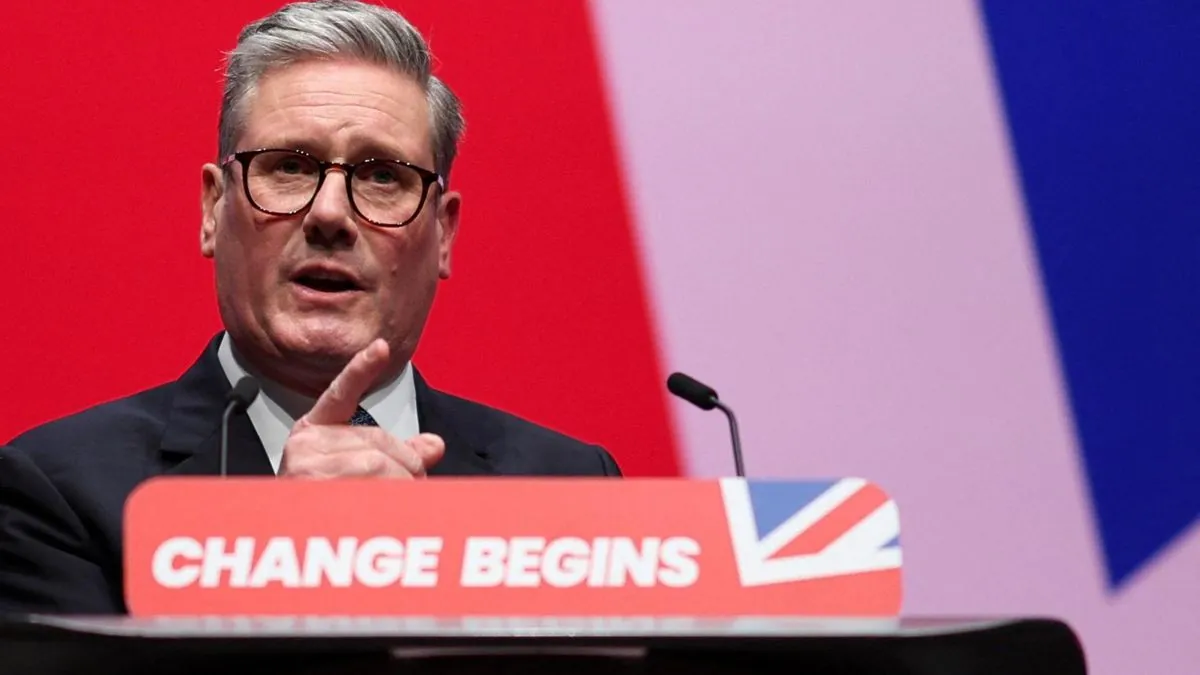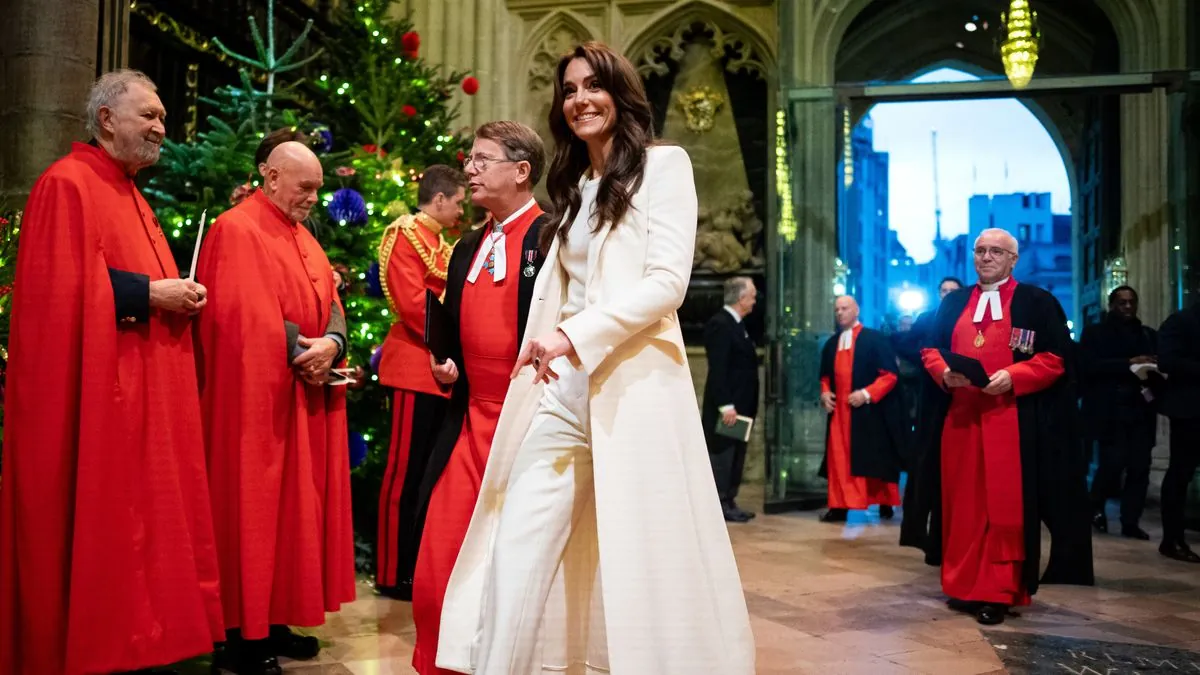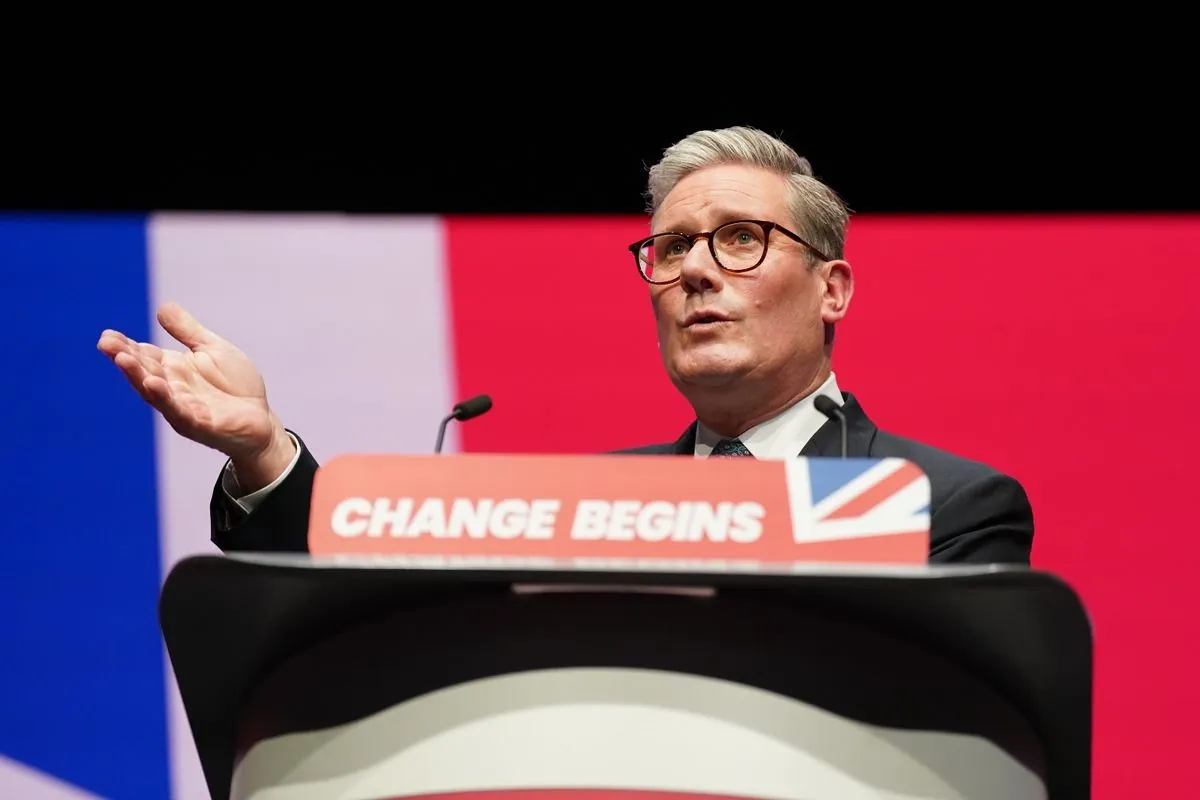Starmer's Speech Echoes Sunak's, Lacks Fresh Ideas at Labour Conference
Labour leader Keir Starmer's conference speech mirrors Rishi Sunak's rhetoric, offering few new policies. The subdued tone contrasts sharply with Labour's past optimism, raising questions about the party's vision for change.

In a surprising turn of events, Keir Starmer's recent address at the Labour Party conference bore a striking resemblance to Rishi Sunak's speech from the previous year's Conservative gathering. This similarity has raised eyebrows and prompted discussions about the Labour Party's readiness for governance after 14 years in opposition.
The Labour Party, founded in 1900, has a rich history of political innovation and social reform. However, Starmer's presentation, delivered under the slogan "Change Begins," seemed to lack the fresh ideas many expected. Instead, it echoed Sunak's rhetoric about "long-term decisions" and a "brighter future," which Labour had previously criticized as "desperate."
Both leaders emphasized similar priorities: economic recovery, welfare reform, reducing NHS waiting lists, and strengthening borders. However, while Sunak proposed bold initiatives like cancelling the northern leg of HS2 and phasing out smoking, Starmer's speech was notably light on concrete policy proposals.

The Labour leader's vague promises to "build a new Britain" and create a country that "respects you as part of our story" left many attendees wanting more substance. This lack of specificity is particularly noteworthy given Labour's current position in the polls and the party's historical achievements, such as introducing the National Health Service in 1948.
Starmer also faced criticism for not addressing the recent controversy surrounding freebies and donations received by Labour members. Instead, he focused on his working-class background, a narrative that some found at odds with the reported tens of thousands of pounds worth of free suits and accommodation from wealthy friends.
The subdued atmosphere of the conference stood in stark contrast to the optimism that characterized Labour's last ascent to power in 1997 under Tony Blair. That era, marked by the slogan "Things Can Only Get Better," saw Labour achieve its best election result ever, winning 418 seats. The current tone, however, seems more reminiscent of the later, more somber years under Gordon Brown.
"We're all in it together."
This statement, intended to unite, may ring hollow for some, particularly pensioners facing the loss of winter fuel allowances.
Starmer's speech, while aiming to present a vision for the future, instead painted a picture of "shared struggle," a tone that some found more fitting for a communist revolution than a modern centre-left party. This approach marks a significant departure from Labour's traditional messaging and raises questions about the party's strategy moving forward.
As Labour approaches its 125th year, with a membership that once peaked at over 500,000 in 2019, the party faces the challenge of balancing its historical roots with the need for contemporary relevance. Starmer, as the 19th leader in the party's history, must navigate these waters carefully to avoid becoming the first peacetime prime minister to tell the nation that things can only get worse.
The Labour conference, an annual event since 1900, typically serves as a platform for showcasing the party's vision and energy. However, this year's gathering has left many wondering if Labour has prematurely adopted a cautious, almost defensive posture more typical of a government in its twilight years than an opposition on the cusp of power.
As the political landscape continues to evolve, all eyes will be on Starmer and his team to see if they can inject the kind of dynamism and clear policy direction that has defined Labour's most successful periods in the past.


































